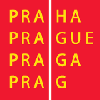Speaker
Description
Recently, an interesting faster than linear dependence of quarkonium production on charged particle multiplicity in p+p collisions has been observed. This can be used to study basic particle production mechanism and relation between soft and hard QCD processes. Such a strong increase of normalized particle yield from hard processes with respect to normalized charged particle multiplicity may be a sign of saturation effects, string percolation or multiple parton interactions. In order to distinguish among these scenarios, the dependence of quarkonium production on charged particle multiplicity needs to be measured in different $p_{T}$ ranges and at different collision energies.
In this presentation, the studies of relation between normalized quarkonium yields and normalized charged particle multiplicity in p+p collisions, measured by the STAR experiment, will be presented. These include the results on $J/\psi$ production both at $\sqrt{s}=200\:\mathrm{GeV}$ and at $\sqrt{s}=500\:\mathrm{GeV}$. At $\sqrt{s}=500\:\mathrm{GeV}$ measurements of $\Upsilon$ production will also be shown. The data are shown for different integrated $p_{T}$ ranges $p_{T}>0, p_{T}>1.5$ and $p_{T}>4\:\mathrm{GeV/c}$. All these results will be compared to model calculations. In addition, prospects for further studies at the STAR experiment will also be discussed.

